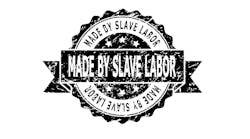Winter is here, and as an employer you have all of your business closing and leave policies in place. But have you made sure that all your policies regarding employees are in accordance with prevailing wage laws?
According to attorney Fiona W. Ong of the law firm of Shawe Rosenthal LLP, legal liability may apply depending on things such as whether you choose to close your workplace for a whole day or just part of one.
Under the Fair Labor Standards Act (FLSA), non-exempt employees are only paid for the hours they actually work. As a result, non-exempt employees who are not required to report to work because of a snowstorm do not get paid. However, non-exempt employees who are sent home early must be paid for the hours they worked that day.
Another thing to keep in mind: Employers may (but are not required to) allow non-exempt employees to use paid leave, such as vacation or paid time off, to cover the scheduled but unworked time.
All of that applies only under federal law. Some states have “reporting time” pay laws that require employers to pay non-exempt employees who show up at work but are then sent home. These laws typically require payment for a certain minimum number of hours, even if the employee does not end up working those hours.
Similarly, state and local predictable scheduling laws may impose certain pay obligations on employers who change employees’ work schedules without sufficient notice—although such laws may contain exceptions for acts of God or acts of nature, which may include weather-related events. It is important to be aware of and compliant with such laws, Ong warns.
The law is applied differently when it comes to exempt employees, she explains. The FLSA generally does not permit deductions from the pay of exempt employees for weather-related closures of less than a full week. Even in such circumstances, the employee may not perform any work during that week.
An employer may require exempt employees to use vacation or paid time off to cover any weather-related closures. If the employee does not have sufficient paid leave to cover the missed time due to the closure, the employer still is required to pay the employee their full salary.
What happens when you decide to keep a workplace open in spite of inclement weather? Under federal law, when the business remains open but a non-exempt employee chooses not to come to work for weather-related reasons, the employee does not need to be paid. In this circumstance, an employer also may choose to allow the non-exempt employee to use paid leave to cover that absence.
When it comes to exempt employees, one of the exceptions to the no-deductions rule occurs when they choose to take a full day off for personal reasons. As a result, if the business is open but the exempt employee chooses not to work that day, the employer may deduct the full day from the employee’s salary. In these cases, the employer may instead require or allow the employees to use paid leave to cover their absences, and the employees still receive their full salary for the week.
Working Through the Weather
“But a word of warning—many exempt employees are able to check their work e-mail from their cell phones,” Ong notes. “If an exempt employee chooses not to come in but performs any work from outside the office—including checking e-mail—they must be paid. Again, they could be required to use paid leave for that day, but if they do not have paid leave available, they must receive their full salary nonetheless.”
In situations where an employee is required to remain on the premises because of a weather emergency, federal wage law is clear, she points out. If this time period is less than 24 hours, all hours on the premises must be paid, even if the employee is sleeping or resting during part of that time.
There is a different rule if the employee is required to remain for more than 24 hours. The U.S. Department of Labor (DOL) recognizes that up to eight hours of non-working “sleep time” may be deducted from an employee’s hours under such circumstances, where there is an agreement to that effect.
Although the FLSA does not define what such an “agreement” consists of, various courts have done so, Ong says, and these courts have found that if an employer publishes a policy that explains the sleep time deduction and if employees continue to work for the employer, this constitutes an agreement for the deduction.
Employers may only deduct for sleep time if the employee is fully relieved of all work during that time and if adequate sleeping facilities are provided. If the employee’s sleep period is interrupted because of work, the interruption is counted as hours worked. If the interruptions are so frequent that the employee cannot get a reasonable night’s sleep, then that entire sleep period would be counted as hours worked.
According to DOL, a reasonable night’s sleep means that the employee is able to get at least five hours of sleep during the scheduled sleep period, but these five hours need not be continuous uninterrupted hours of sleep.
In addition, only the actual number of hours spent sleeping, up to a maximum of eight hours, is deducted. If the sleep time is more than eight hours, no more than eight hours can be deducted. “Obviously, this means that each incidence of sleep time would need to be assessed individually,” Ong stresses.
If an exempt employee remains on the premises and works more than their usual hours, there is no obligation under FLSA to pay them any additional compensation for the extra work. If it wishes to do so, the employer can choose to pay a bonus or other additional compensation—even compensation calculated based on the additional hours worked—in addition to their normal salary without jeopardizing the employee’s exempt status.
Making sure that you abide by these requirements will help you avoid legal liability that could arise from the snow like Frosty the Snowman, but with less friendly intentions. And, as Ong has warned, employers also need to fully understand and adhere to applicable state and local laws.




